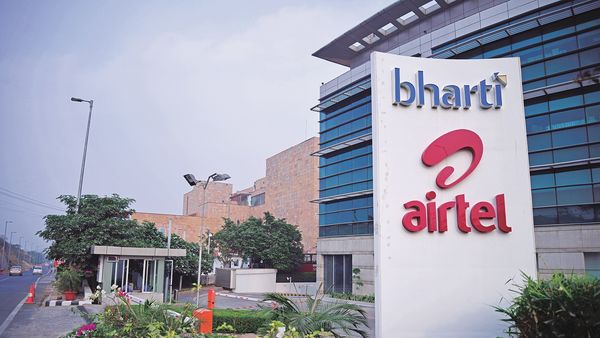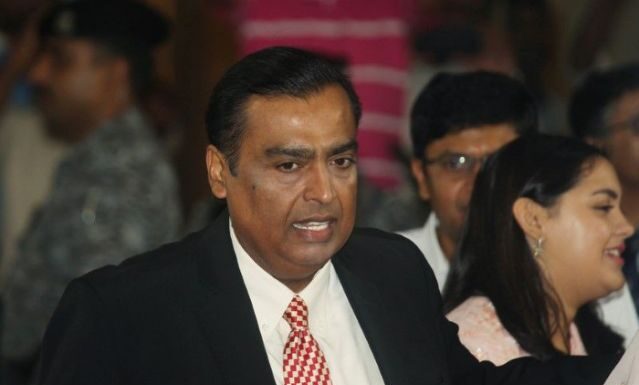- Telecom firm launches $2 bn QIP, to raise another $1 bn by issuing FCCBs
- The fundraise comes over two months after the top court order upholding the government’s revenue definition
Bharti Airtel Ltd on Wednesday launched a qualified institutional placement (QIP) worth $2 billion at a floor price of ₹452 per share, as well as a separate fundraise exercise through issue of foreign currency convertible bonds (FCCBs) of up to $1 billion.
The operator, hit by a court verdict that has mandated it to pay dues of ₹35,586 crore to the department of telecommunications (DoT) by 24 January, will use a chunk of the proceeds to meet this liability. “The company proposes to utilize the net proceeds for any payments that may be required to be made arising out of the judgment of the Supreme Court of India delivered on 24 October in relation to a long outstanding industry wide case in respect of the definition of adjusted gross revenue (AGR),” Airtel said on Wednesday.
The fundraise exercise comes more than two months after the 24 October order of the Supreme Court upholding the government’s definition of revenue that includes revenue from non-core telecom operations such as rent, dividend and interest income. Licensees have to pay 8% of their AGR as licence fee to DoT. The verdict settled a 14-year dispute between DoT and operators.
The latest share sale comes less than a year after Airtel raised ₹25,000 crore through a rights issue in May 2019.
Bharti Airtel also plans to use the proceeds from the QIP to augment its long-term resources and strengthen its balance sheet, for servicing and/or repayment of short term and long term debts, capital expenditure, and long term working capital requirements, among others, it said on Wednesday.
The proceeds of the FCCB issue will be used for capital expenditure, repayment of existing indebtedness, and/or any other use as permitted under applicable laws and regulations from time to time, Bharti Airtel said.
FCCBs are debt instruments denominated in a foreign currency, which can be converted into shares.
Shares of Bharti Airtel closed at ₹458.95 on the BSE on Wednesday, up 3.05%, while the benchmark Sensex index closed 0.13% lower.
The company’s board had on 4 December approved the proposal to raise up to $3 billion (around ₹21,500 crore) through a mix of equity and debt.
Bharti Airtel posted a ₹23,045-crore loss in the September quarter, its highest and second quarterly loss in 14 years, compared to a profit of ₹118 crore a year ago, as it set aside ₹34,260 crore to pay the AGR dues.
The company has also resorted to two rounds of tariff hikes in November and December.
On 29 December, it raised the minimum monthly recharge for prepaid users to ₹45 with immediate effect from Sunday, more than a year after it set this tariff at ₹35.
Bharti Airtel also needs to build a war chest to take on Reliance Jio Infocomm Ltd in the competitive telecom battleground.
India’s telecom sector has witnessed disruption after the entry of Jio, a subsidiary of Reliance Industries Ltd, in September 2016, bringing down data prices to rock bottom. Following this, half-a-dozen telcos either shut shop or were acquired by bigger players. The domestic telecom market is now largely a three-way play between Bharti Airtel, Vodafone Idea, and Reliance Jio.
Airtel will also require resources as DoT prepares to hold the first spectrum auction for 5G airwaves by April. DoT plans to put 8,300 megahertz of spectrum at a reserve price of ₹5.23 trillion under the hammer. Of the 8,300MHz, 6,050MHz are allocated for 5G services.
The next generation of wireless technology is set to catapult data speeds and propel the Internet of Things, with the potential to bring radical changes in agriculture, manufacturing, healthcare, and education.













![Hotstar Premium Cookies 2019 [*100% Working & Daily Updated*] Hotstar Premium Cookies 2019 [*100% Working & Daily Updated*]](https://tahav.com/wp-content/uploads/2019/11/Hotstar-Premium-Cookies-Free-100x70.jpg)



